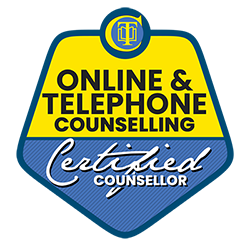Feeling Stressed? Ten Top Tips for Helping You Manage Your Stress
Skyla Counselling
12/15/20242 min read


Understanding Stress
In today’s fast-paced world, feeling stressed is almost inevitable. Stress can manifest itself in various ways, affecting both our physical and mental health. Acknowledging stress is the first step toward managing it effectively. Whether it's work-related pressures or personal life challenges, it's crucial to take proactive measures to maintain your well-being.
1. Identify Your Stressors
The first tip in managing stress is to identify what triggers it. Keeping a diary can help you pinpoint situations that lead to stress. Whether it's certain tasks, people, or environments, recognizing these stressors is vital for developing strategies to cope with them.
2. Practice Deep Breathing
Deep breathing exercises can help combat immediate feelings of stress. Try inhaling deeply through your nose, holding for a few seconds, and then exhaling slowly through your mouth. This simple technique can help return your body to a state of calm during stressful moments.
3. Stay Active
Regular physical activity is an effective way to reduce stress. Exercise releases endorphins, which are chemicals in the brain that act as natural painkillers and mood elevators. Whether it’s a brisk walk, yoga, or a gym workout, find an activity you enjoy and make it a part of your routine.
4. Maintain a Healthy Lifestyle
Your diet can significantly impact how you feel. Eating a balanced diet filled with fruits, vegetables, lean proteins, and whole grains can improve your emotional resilience to stress. Avoid excessive caffeine and sugar, as these can lead to increased feelings of anxiety.
5. Establish Boundaries
Sometimes, stress arises from taking on too much responsibility. It's essential to learn how to say no and establish boundaries to protect your time and energy. Prioritize your commitments and allocate time for yourself to recharge.
6. Connect with Others
Don’t underestimate the power of social support. Sharing your feelings with friends or family can lighten your emotional load. Engaging in meaningful conversations or simply spending time with loved ones can provide relief during tense moments.
7. Set Realistic Goals
Break tasks into smaller, achievable goals. Setting realistic expectations prevents feelings of overwhelm and enhances your sense of accomplishment as you complete each task. Remember, perfection is not the goal; progress is.
8. Embrace Mindfulness
Mindfulness involves staying present and fully engaging with the current moment. Techniques such as meditation, guided imagery, or simply focusing on your breath can help reduce stress. Practicing mindfulness can shift your focus away from worries about the past or future.
9. Limit Media Consumption
Sometimes, the news can be overwhelming, adding to your stress. Consider limiting your consumption of news and social media to avoid added anxiety. Time away from screens can help to clear your mind and focus on the positive aspects of your life.
10. Seek Professional Help if Necessary
If you find that stress is becoming unmanageable, don’t hesitate to seek professional help. Therapists or counsellors can provide valuable tools and strategies tailored to your unique situation. Remember, asking for help is a sign of strength, not weakness.









